From Pratipadu to Belgrade: The journey of Harikrishna Pentala
On 16th of March, 2016 Harikrishna Pentala reached a live rating of 2763.3 and with it he overtook Vishy Anand on the live Elo rating scale. This was the first time in Indian chess that someone had moved ahead of Anand in the last three decades. Harikrishna is a genius, no doubt about that. By winning the world under-10 title, almost all the age category nationals, and world junior title, he had made it clear that he has the talent to be the best in the world. Yet, the journey to the top for Hari was not at all easy. He stagnated, he plateaued, but he never gave up. It's a story of grit and dedication of how a boy who learnt chess in a village of Andhra Pradesh went on to reach the top ten players in the world of chess! | Thumbnail image: Alina l'Ami
13th ChessBase India show with India number two Pentala Harikrishna
It had happened for the second time in a row that Hari was knocked out at the World Cup by S.P. Sethuraman. First time in 2015 and now in 2017. It was a sad occasion for Indian fans as on the previous day Anand had been eliminated and now it was the time for our next best hope Harikrishna Pentala to be sent back home packing. Hari left the playing hall and went back to his room. I was pretty dejected that I won't be able to see him again. But the next day Hari was there in the playing hall watching the game intensely!
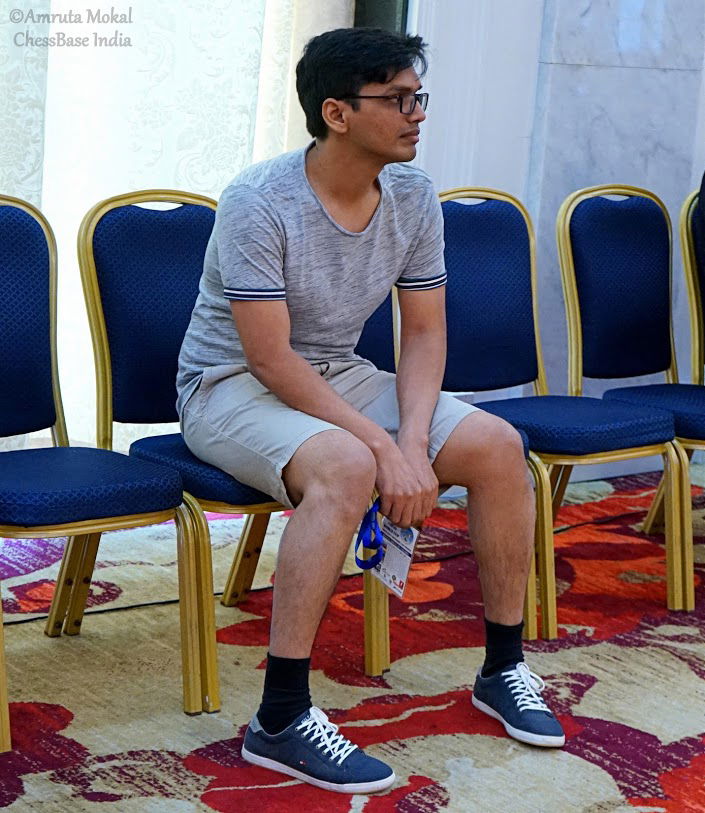
It was a pleasant surprise for me that Hari was still in the hotel. I had always wanted to do an interview with him and know more about his life, his prodigious beginnings, his steep ascent, the stagnation in the 2650-2700 zone and how he battled it to reach the top ten players in the world. "After breakfast works for me", said Hari. "Let's meet at 10 a.m." That day the games of the World Cup went on right until the very end - mainly Aronian vs Matlakov. My report for ChessBase ended at 6 a.m. in the morning. I went to the bed with an alarm to wake up at 9 a.m.
When the alarm rang at nine, I was wide awake. Although I had only slept for three hours, the prospect of interviewing Hari made me forget my tiredness. I prepared myself for the interview and met him in the press room. Hari had packed his bags and was ready to leave the hotel. He had specially taken out an hour for the ChessBase India show. With his calm approach he started answering one question after another. As I sat today transcribing the entire interview, I am extremely happy with the quality of it. There is something in it for everyone - right from players like Vidit, Adhiban and co. and also for rank amateurs who are taking their initial steps in the game.
Interview with Harikrishna
Sagar Shah (SS): How did you get interested in the game?
Pentala Harikrishna (PH): I was staying at my maternal grandfather's house in Pratipadu village near Guntur and he usually plays chess as a pastime. Like any other kid I was interested in cricket, but I was also curious to know what my grandfather was doing. He would take the chess pieces and spend hours with other people of the village! When he saw that I was following the game so keenly he decided to teach me the rules. One day when he was playing with his friend I suggested a move which both of them had missed. I didn't really understand the strength of the move at that point, but it turned out to be the best in the position! That's when he realized that I could become a good chess player.
Also at night he would give me all these mathematical puzzles which I was good at. There were often kids who would solve the math problems with a pen and paper where as I did it in my head and was faster than them. So chess and mathematics were two things that my grandfather felt that I had talent in and I should be taught more. I myself was fascinated with the calculations and strategy of the game of chess and I enjoyed playing it thoroughly.
SS: How old were you back then?
PH: I was around four and a half years old.
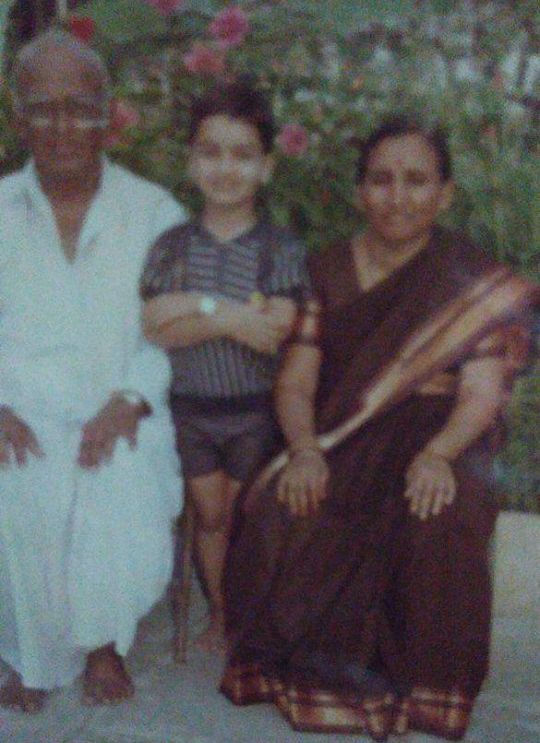
SS: What were the next steps that you took to get better at the game?
PH: I would usually play against my grandfather and not give up until the very end. Sometimes just so that we could go and have a meal, he would resign the game! But, very soon I began to beat him. Next, he invited some of the best players from the village to play against me and sure enough I was losing almost all the games. I was pretty disappointed but my grandfather came up with this nice idea of him facing the opponents first, tiring them out and only then making me play! Very soon they figured out this trick! (smiles) But they were all chess lovers and they just enjoyed playing chess.
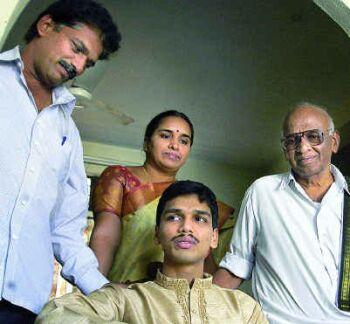
I remember that in my first tournament that I played I beat a rated player! But my opponent was very happy. His photograph came in the newspaper as he had lost to a boy who could barely reach the table! (laughs) I was sitting on my grandfather's lap and making the moves. Soon people started to say that I was receiving help from him and so I had to sit with two pillows to reach the board (laughs). I won the state under-8 title and that's how you can say my chess career began.
SS: Who was your first coach?
PH: My first coach was my grandfather. Later I was trained by G.K. Narayana of Guntur and then Shiv Prasad of Vijaywada.
SS: Hari, it won't be an exaggeration to say that you were a child prodigy. You won the World under-10 title and almost all the age category national titles. Looking back, what do you think was your biggest quality that helped you to be so strong?
PH: When I started to play I just wanted to win. I wasn't particularly a good player when I began. I just enjoy the tension when I play and I want to keep the tension. This I think was one of the main reasons why I could win more tournaments in childhood. Because as far as chess understanding and openings are concerned there were many players better than me. But they would always finish second or third, mainly because when it came to sustaining the pressure I did that the best.
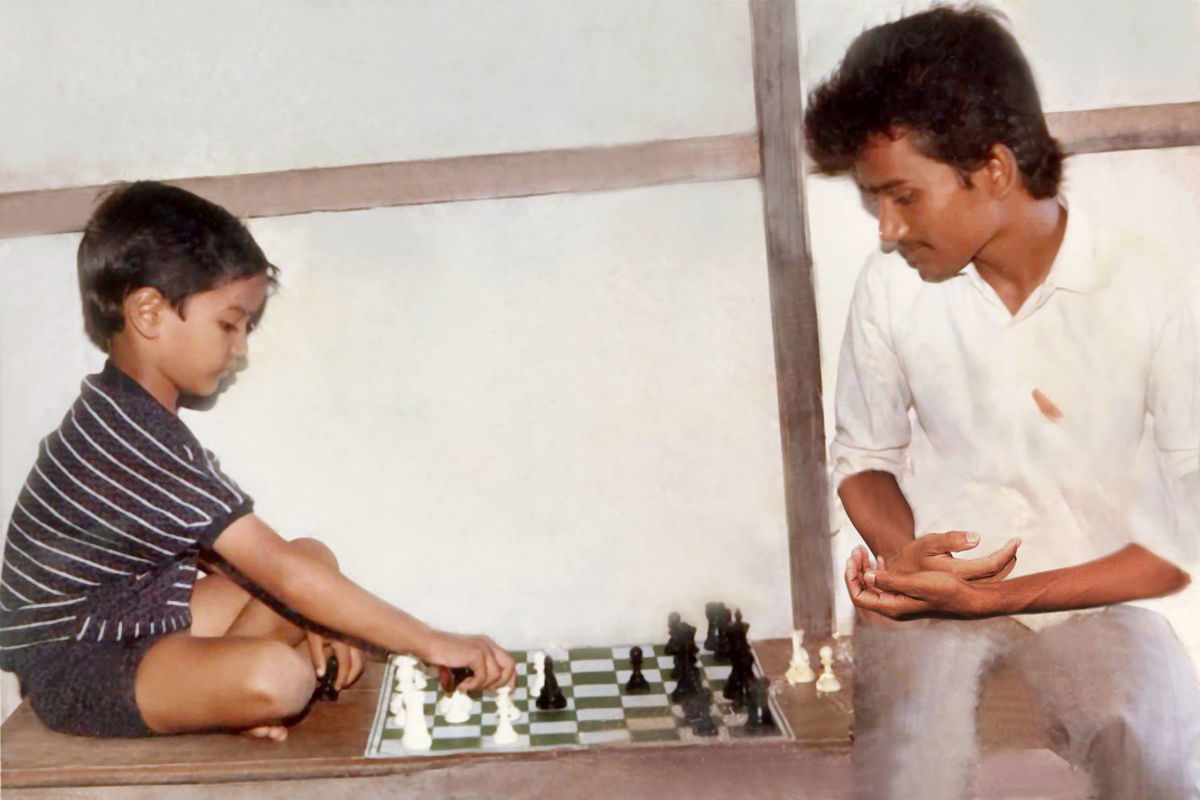
When I won the world under-10 in Spain, I didn't know it's a big thing. I won the championship and I went back to the room and started watching Cartoon Network (laughs). I just didn't care for anything apart from winning games. The championships and titles didn't mean anything. And you could say this was the reason why I won so many tournaments when I was young. Later on a lot of coaches helped me to improve my game and chess wise also I started becoming stronger.
SS: This quality of yours of maintaining the tension is one that must have helped you throughout your chess career until now.
PH: Yes sure. As long as there is tension on the board and I am in a good mood, I really enjoy myself. There are times when I am not in the best mood and then I am not able to sustain the pressure so well. But in general I am able to give my best under high tension situations.
SS: Hari, when one looks at your games there is a breath of fresh air. Not so much emphasis on openings, focus on the fight and struggle. Very few elite players have this style.
PH: Well my style of play has undergone changes over the years. I no longer play the way I used to when I was ten years old (laughs). But in general I do not like opening preparation. I feel at home in positions where both me and my opponent are out of opening preparation. In this fresh position I feel that I have the best chance to outplay my opponents. Maybe this was the reason why you would see relatively less theoretical games of mine until 2000 or 2001. But when I crossed 2600, I started paying attention to the opening phase of the game, because at that level you simply cannot ignore the openings. If you get a bad position, you might not be able to come out of it throughout the game.
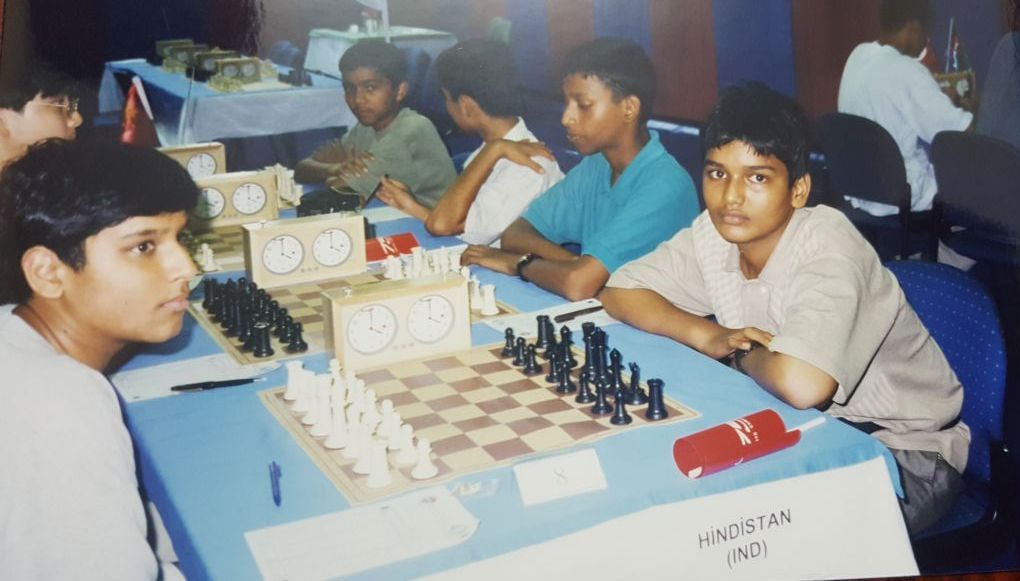
SS: When you were young what were some of the training techniques that you indulged in or books you read that helped you to become stronger?
PH: I remember two books that I read - one was domination in 2545 positions by Kasparyan and the other was a book based on tactical themes like pin, decoy, knight fork etc. Apart from these there was the informator which had the games of the top players analyzed by strong grandmasters. I have read classics like Fischer's My 60 memorable games or games of Mikhail Tal, but mainly I wanted to play chess. If any player was available I would play with them! But then coaches started to discipline me and forced me to study chess! (laughs)
SS: Is it true that when you were young, you were lazy?
PH: Who told you that. Just because you get to see Magnus Carlsen's basketball and swimming pictures, doesn't mean he is not working on chess (laughs!) I am joking of course. But it really depends on which period you are talking about.
SS: When you were young!
PH: I think if we speak about the period until 1997 or 1998 I would say that you are most probably right. I did not study chess at all. I remember my work with Varghese Koshy from 1997-2000. We worked so hard on chess. Perhaps it's the hardest I have ever worked and will ever work! (laughs). Apart from the chess improvement it was nice to know how to work intensively on the game. Another turning point in my career was when Vladimirov was invited to work with Indians. You see I cannot really work from a fixed time say 9 a.m. to 5 p.m. or 10 a.m. to 10 p.m. It depends on my mood. Sometimes I would not work at all, while on some days I would surpass all time barriers.
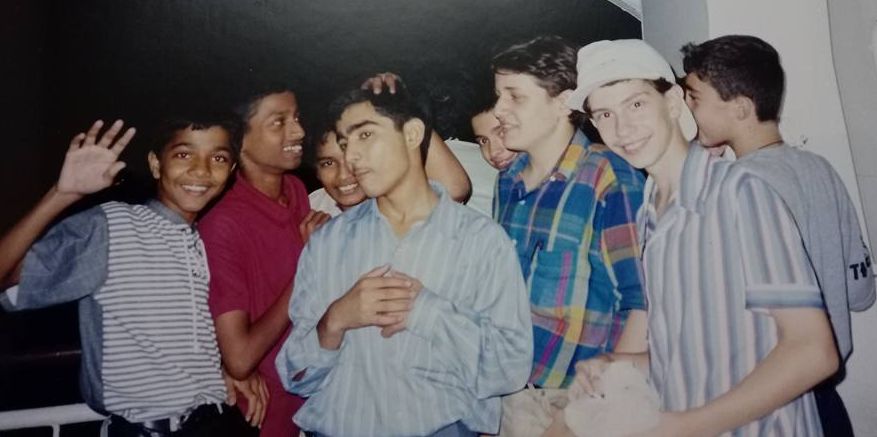
SS: What is your educational background?
PH: I finished my twelfth and I enrolled in Open University, but I couldn't complete my education. Somehow the Asian championships would always clash with my examinations and I wasn't able to appear for them. But I don't think this is very important. Because I learned the knowledge which is there in the subjects. I have the knowledge with me, and for me it is fine even if I don't pass my exams and get a degree.
SS: So you were always certain that you would become a chess professional?
PH: No (smiles). It's very difficult to say that you will be a professional until you are 15 or 16 years old. As you can see Parimarjan left chess when he was rated around 2670. He became a GM when he was just 13 years old. Perhaps at that time he would have thought that he would be a professional player or perhaps he didn't think about it, but all this success in the initial period of your career is quite common I must say. This doesn't mean or guarantee anything when you are fighting for the top places. Because in chess unless you are in the top 20 or top 10 it is very difficult to be a professional. Reaching top 50 is also a success, being a child prodigy and having big jumps at the start of the career is great, but it is not going to ensure that you will reach the absolute elite. It is a huge struggle. Being a top player is a different level altogether. There will be huge prospects but only a few will be able to make it.
SS: You became a GM at a very young age. You also crossed 2600 pretty quickly, right?
PH: Actually, I think between 1999 and 2000 I gained 300 Elo points. I had a rating of 2254. I remember I gained a lot of Elo points!
SS: Without the k-factor being 40!
PH: (Laughs) All these are new things. Back then my k-factor was 15 and there used to be only two rating lists published every year. I was gaining around 60 Elo points in every tournament that I was playing. But there was a rule that you could not gain more than 100 rating points in one period. So I am sure that I gained more than 300 Elo points but my rating around July 2000 was 2500. I lost quite a rating points because of this rule, but I didn't really care whether I was 2550 or 2500 or much less.
SS: Hari, the road to 2650 without doubt would have been tough, but I think the real struggle for you was the journey from 2650 to 2750. How did you do that when you were nearly 30 years old? I think this is an inspiration even for many top GMs who are rated around 2650-2700.
PH: I reached 2682 back in 2006, when I was just 20 years old and was ranked 20th in the world. But then I had a couple of bad tournaments and I was stuck for a really long time, nearly four to five years. In some ways I would say reaching 2680 was not very difficult because Sasi (K. Sasikiran) had done it before me. He later even crossed 2700 but that was in 2007. So someone you knew very well had already done it. But then from 2680 to 2750 was really tough. As I said, you can have all these jumps when you are young like I had or many of the young Indian players are having right now, but this journey to reach 2750 is something altogether different. Every point is so important.
In 2010, I was down to my lowest rating since 2005. I was rated 2646 after the Asian Championship. But then the upward graph began. I won the New York Open, I finished 2nd in World Open. But two tournaments really changed things and motivated me were the Asian Championships in Iran that I won in 2011 and the Tata Steel Challengers in Wijk Aan Zee 2012, which in a way opened doors for me. After that it has been an upward journey. I may lose rating points or gain rating points, but level of my play had improved.
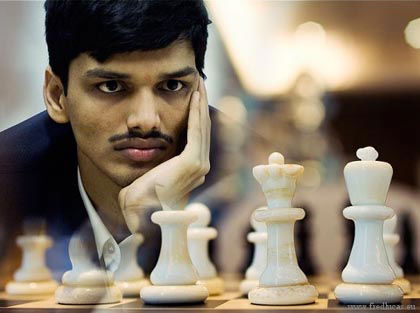
SS: Did you have a feeling of having hit a plateau? Weren't you demoralized when your rating had stagnated in that 2640-2680 zone for nearly five to six years?
PH: It was definitely not a pleasant feeling when you cannot improve for four to five years. But on the other hand expectations is one thing, and reality is another. The moment you start taking expectations into consideration and forget about reality, you start facing problems. This is what I experienced when I was struggling back then. Instead of thinking your deserve to be there, you should try to improve and analyze your mistakes. This result oriented thinking happens when you face a big setback in a situation where you hadn't expected it. My advice would be to analyze your mistakes and hold on to your confidence. I know that it is not easy to follow this when things are not going your way.
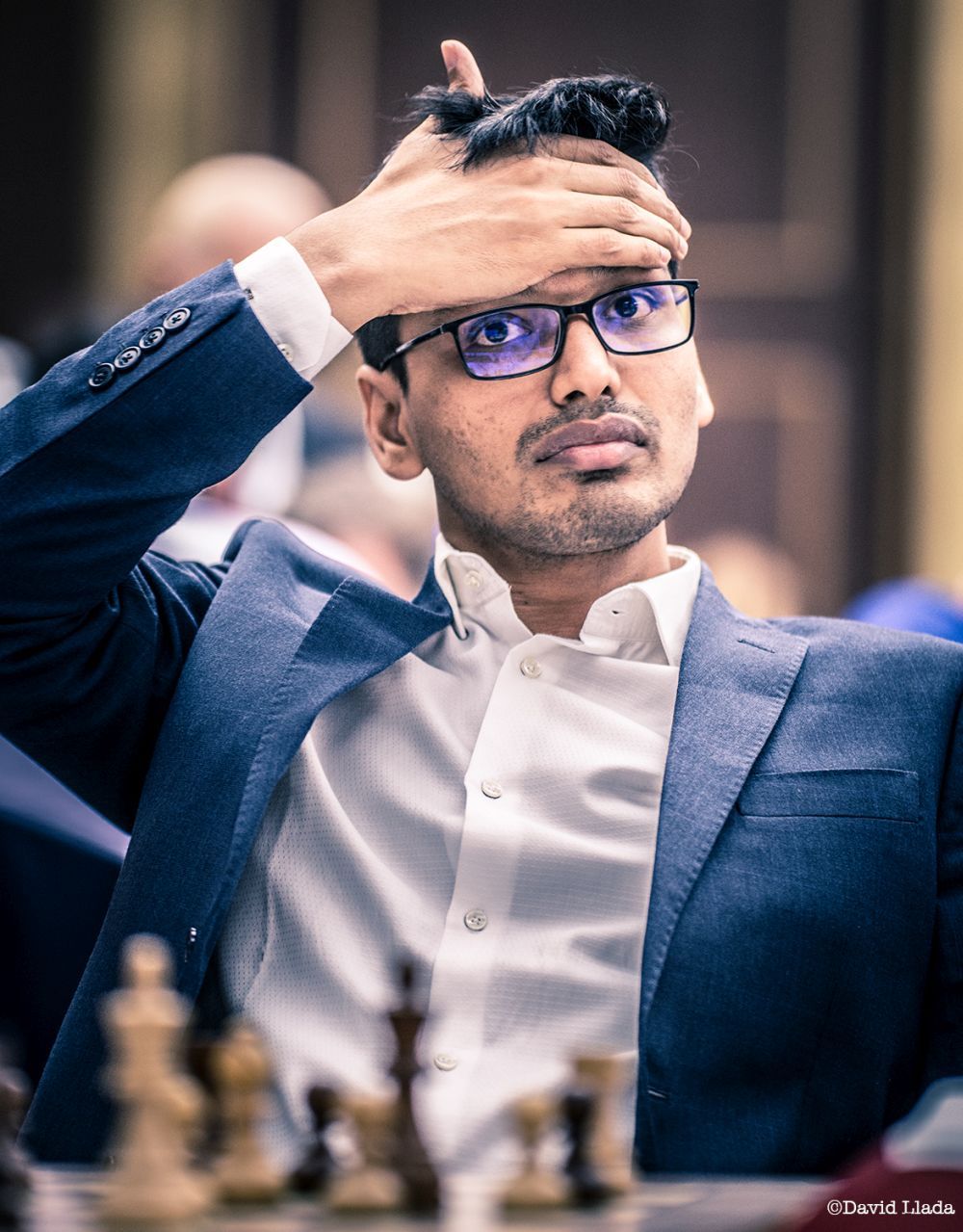
I think players should not keep an aim when playing chess. For eg. if you have an aim of being a grandmaster or reaching 2600, and then you achieve the goal, it takes a lot of time to find the next goal. It takes a lot of effort to persuade your brain to go towards the next goal. Therefore it's always better to keep your mind open and keep moving forward. That's what I do.
SS: Do you think you are currently one of the best players in the world?
PH: No.
SS: What would be the thing that you could improve upon?
PH: Well (...after some thought). It also is important what do you mean when you say one of the best in the world.
SS: Top ten in the world.
PH: I think I am near, but not yet there.
SS: You have beaten guys like Mamedyarov, Giri, Adams and so many top players. Your highest rating has been 2768. Why do you still think you are not there?
PH: It's not important to have an individual good score against opponents. It's not important that you finish second, third or even gain rating during a tournament. What is crucial is whether you have won the championship or not. Take any sport for that matter Football, Tennis - what counts is whether you have won the tournament. In that sense it is funny that in chess you can win a championship and still lose rating points. But in any case, when all the top players of the world are present and I win the tournament, that's when I will feel that I am right up there.
SS: It all comes down to the 10-year-old Hari who believed only in winning!
PH: I strongly believe that winning championships is important. Finishing third, fourth, fifth or drawing with the World Champion means nothing especially if it is with the white pieces.
SS: How important was it for you to shift your base from India to Serbia.
PH: I shifted my base from India to Serbia in somewhere around 2014 to beginning of 2015. My chess career was going on pretty well until then. But for me to reach the next step I had to stay near the players with whom I am practicing. Secondly I play a lot of leagues - Czech League, Bundesliga, Spanish League. So for me it was much more accessible. I also started to play for team Solingen in Bundesliga which was nice. I don't want to reveal all my seconds, but most of them, if not all, stay in Europe and it is easier to work with them.
SS: Of course, we do not want you to reveal all your secrets, but are there any seconds which you would like to tell us about.
PH: Here, at the World Cup I was helping my friend GM David Navara to prepare against Alexander Grischuk, a very strong opponent. The match was quite interesting and it was nice to work with him. It's been nearly five years that I am in touch with David and Markus Ragger is another second whom you must be aware about. He was with me in the FIDE Grand Prix as well as Norway Chess.
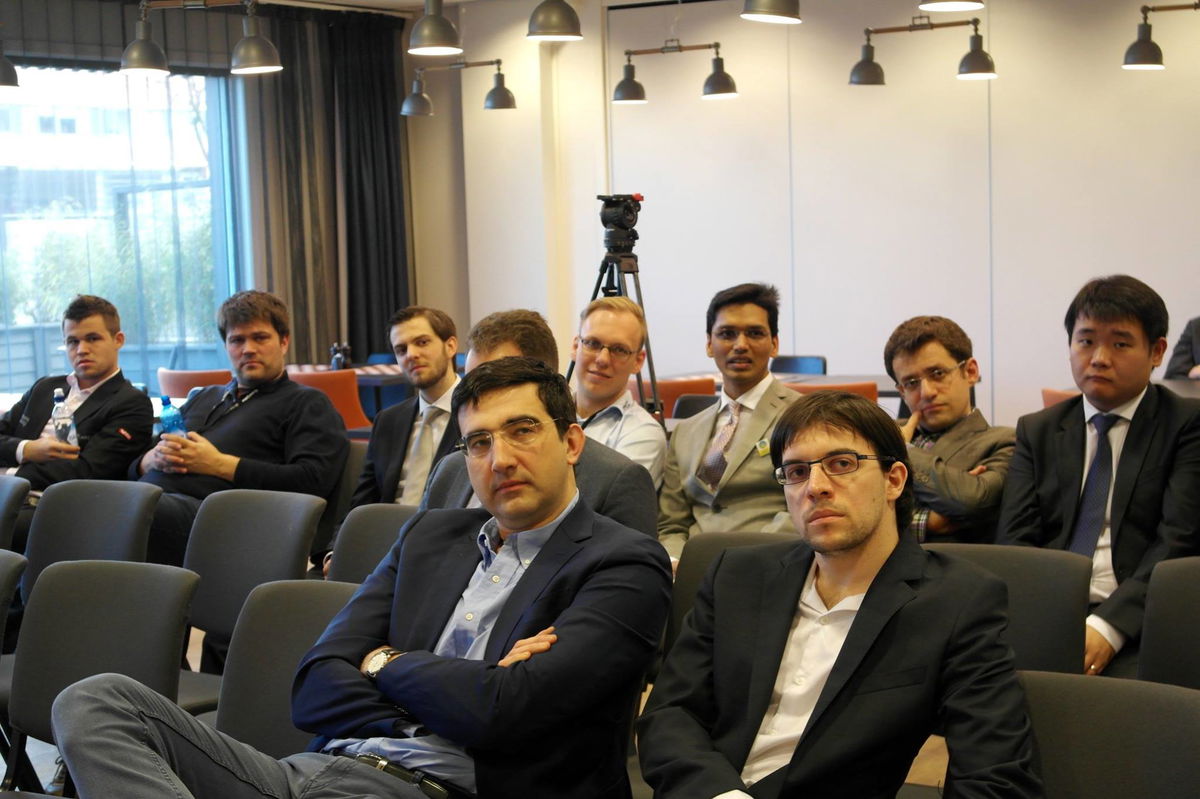
I won the Isle of Man tournament, then Edmonton International and had good performance at the Olympiad. So you can say that shifting my base to Serbia has worked well for me. This year (2017) hasn't been particularly successful, but...
SS: ...the year is not over yet!
PH: (laughs) You are very optimistic! That's good to see. Until now the performance has not been up to the mark and that's how it is.
SS: Once when I interviewed Abhijit Kunte, he said that when he was at the height of his powers, he had reached 2550 in the Elo scale, he considered not shifting to Europe to be one of his key mistakes. Do you think it is imperative for Indian talented youngsters, let's say guys like Vidit, Adhiban and others to be in Europe or do you think living in India is now fine.
PH: It really depends on the person. It's hard to generalize these kind of things. An example is Anand - he went to Europe and the result for all to see. A player needs to make his own call. On the surface it might look simple. You go there, stay and improve. But it's not so simple. Firstly you miss your family, then your friends and then food. (laughs). I think these three things are the most important in any person's life. So it all boils down to whether you can sacrifice these things for success which is not guaranteed! So I saying this or someone else saying about shifting the base in Europe doesn't make sense unless the player himself has decided from within that he is ready to face the consequences.
SS: When you decided to stay in Europe you were prepared to face all the consequences from the start.
PH: Yes, there are a lot of bad things, a lot of good things. You just go with the flow and take it as it comes.
SS: You are India number two, Vishy is number one. How big do you think is the difference between the two of you?
PH: First of all, he was five times World Champion. He has won Wijk Aan Zee six or seven times [Ed- five times], Linares twice and many other events. So, this rating change, and India number one is exciting for the public and the media. But when you ask a player, he knows that it's not the same. Simply because you can overtake him on the rating and this is all fine, but what he has achieved in his career, and what I have achieved is not even close. In that sense he is much above rest of the Indian players. But one thing is nice that when it comes to ratings it's me who is going towards him and not him coming down. So you improving your game is always a pleasant feeling. This comparison might be good for making chess popular, but as a chess player I am not even thinking about it.

SS: So this comparison is not at all there on your mind?
PH: Not just now, it was not there even in 2016 when I briefly overtook Anand on the live rating list. He was playing in the Candidates and the media was asking me for a quote. I think it wasn't fair because there he was playing in the Candidates, and this achievement is any day superior to me surpassing him on the rating list. I think it is much more important to cheer for your country man who has reached the Candidates than to think about who is first or second on the Elo list.
SS: What does the life of Harikrishna look like on a normal day when he is working on chess?
PH: As I said, I am not a very organized person. I do things when I feel like doing them. If I feel like going for a jog, I will do that. In general there are days when I absolutely do not work on chess, but usually when I do I work for 6-7 hours. I would play some games online or solve some puzzles.
SS: But you look very fit, there is definitely some fitness regime that you follow!
PH: Right now I am not doing much physical exercises since the last two months. But usually I do follow a fitness regime which includes exercises, breathing techniques and much more. I don't really become fat so easily like how I was in my childhood when I was 12 or 13 years old.
SS: What are your hobbies?
PH: I like to listen to music. I can't paint! (laughs) All sorts of music like Telugu, Hindi, English. I don't have a playlist. I switch on some sort of autoplay and enjoy the music. I do not like to sit indoor and do some creative work as this is what I am doing on the chess board. So sports is my favourite hobby. Can be badminton, table tennis, tennis and I am not so bad at them.
SS: Final question, do you think you can become the World Champion?
PH: Who can say! (smiles). Every player's dream is to become a World Champion, but they can only work towards it and never be sure about it. There is no point in thinking whether I will become a World Champion or not. Also you know, when you see Magnus, it is not just about being the World Champion. He is trying to win in every game and tournament that he plays even after becoming the World Champion just like Anand, Kasparov and others. It's difficult to be the World Champion and I will try my best.
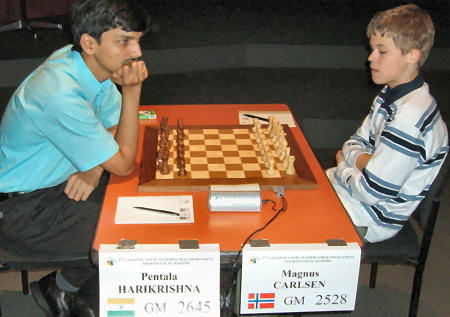
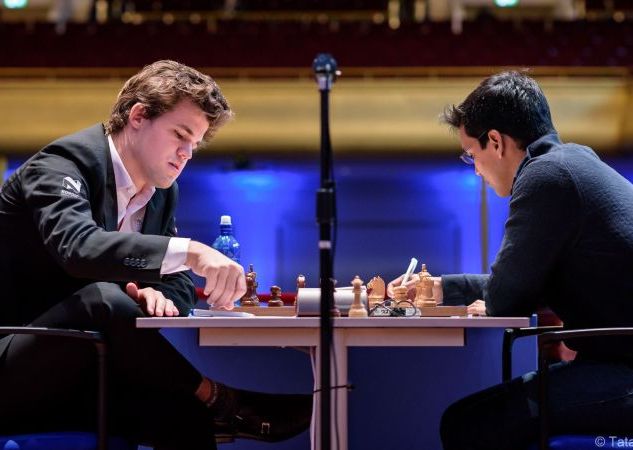
After the interview I asked Hari to show us one of his favourite games. He chose his duel against Shakhriyar Mamedyarov from the Baku Olympiad 2016. Hari speaks about his game for 15 minutes and I think the way he explains his game is just pure gold. You get to see how a 2750+ grandmaster thinks at the board and how he is able to outfox another player (Mamedyarov) who is equally talented.
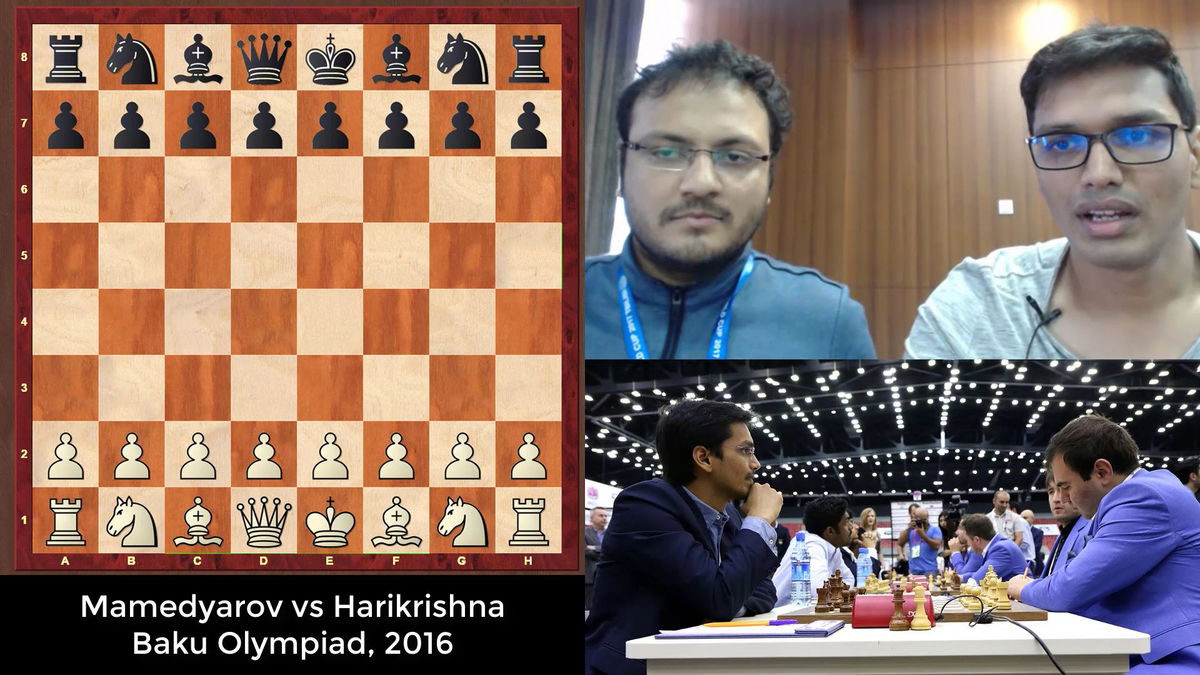
How to watch Harikrishna's analysis:
You can watch Hari's analysis of the game Mamedyarov - Harikrishna by downloading the 13th ChessBase India show from below. It's free! Besides you can also hear the above interview in the audio - video format. Fast forward to 42 minutes and the game analysis with Mamedyarov begins!
Please note that this product is available only to people from India, Bangladesh, Sri Lanka, Nepal, Malaysia, Thailand, Philippines and Indonesia. If people from outside these countries, say USA or European countries would like to watch the show, please write to us at chessbaseindia@gmail.com. We will make some arrangements.











